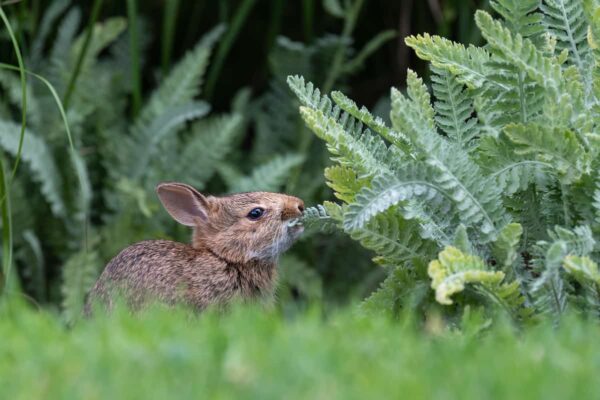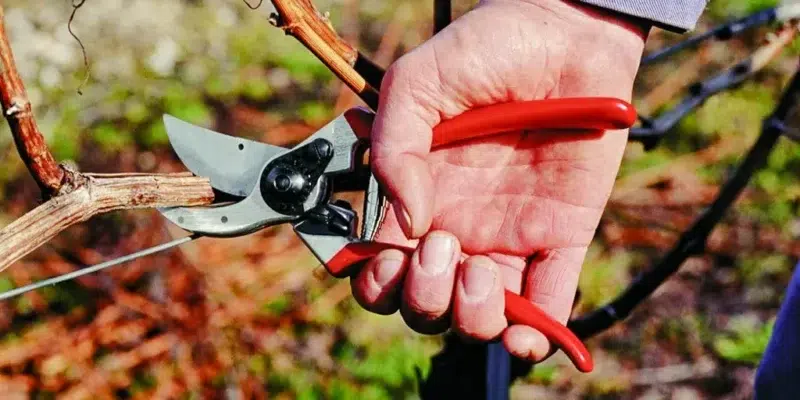Introduction
Rabbits are undeniably adorable creatures, but for gardeners, they can be quite the menace. Their voracious appetites can turn a thriving garden into a barren wasteland in no time. While there are various ways to protect your plants from these furry invaders, the first step is to identify which plants are particularly attractive to rabbits. In this article, we will explore some common plants that rabbits find irresistible and discuss strategies to protect your garden from their munching tendencies.
**1. ** Clover (Trifolium spp.)
Clover is a staple in many gardens, prized for its ability to enrich the soil with nitrogen. However, its tender leaves and sweet flowers are like a buffet for rabbits. Red clover, white clover, and clover-like plants are all susceptible to rabbit attacks.
Protection Tips: Consider using wire mesh or cloches to cover clover patches, making it difficult for rabbits to access the leaves and flowers. Additionally, planting clover in pots or raised beds can deter rabbits from reaching the plants.
**2. ** Lettuce (Lactuca sativa)
Lettuce, with its succulent leaves, is a favorite among both gardeners and rabbits. Whether you’re growing crisphead, romaine, or loose-leaf varieties, rabbits won’t discriminate—they love them all.
Protection Tips: Create physical barriers around lettuce beds using chicken wire or garden fencing. Alternatively, you can interplant lettuce with strong-smelling herbs like basil and oregano, which rabbits tend to avoid.
**3. ** Carrots (Daucus carota)
Carrots are a popular vegetable choice in gardens, but unfortunately, rabbits have a keen sense of smell and can easily detect them beneath the soil. Their tender young shoots are also tempting for these small herbivores.
Protection Tips: Plant carrots alongside strong-smelling herbs or plants like rosemary and marigolds. These act as natural deterrents. Raised beds with wire mesh bottoms can also prevent rabbits from burrowing into the soil and accessing the carrots.
**4. ** Broccoli (Brassica oleracea var. italica)
Broccoli, with its dense clusters of florets, is an irresistible treat for rabbits. They enjoy munching on both the leaves and the flowering heads.
Protection Tips: Use row covers or netting to shield broccoli plants from rabbits. Regularly inspect the covers to ensure there are no gaps or openings where rabbits could sneak in.
**5. ** Beans (Phaseolus spp.)
Young bean plants, including green beans and snap peas, are tender and delectable to rabbits. These legumes are often planted in gardens for their nutritional value and ease of cultivation.
Protection Tips: Encircle bean plants with wire fencing or mesh. You can also try planting beans alongside less attractive plants to divert the attention of rabbits.
**6. ** Strawberries (Fragaria x ananassa)
Strawberry plants produce sweet, juicy fruits that humans and rabbits both enjoy. The low-hanging leaves and ripe berries are especially vulnerable to rabbit attacks.
Protection Tips: Elevate strawberry plants in hanging baskets or containers to keep them out of reach. Applying mulch, such as straw or pine needles, around the plants can deter rabbits by making it uncomfortable for them to navigate the area.
**7. ** Cabbage (Brassica oleracea var. capitata)
Cabbage, along with other members of the brassica family, is a target for rabbits due to its tender leaves. These plants are not only a delicacy but also a valuable source of nutrition for rabbits.
Protection Tips: Utilize row covers or cloches to shield cabbage plants. Additionally, consider planting companion plants like onions and garlic, which emit odors that rabbits find unpleasant.
**8. ** Tulips (Tulipa spp.)
Tulips, known for their vibrant and diverse colors, are not only eye-catching for humans but also for rabbits. These ornamental flowers are a delicacy, particularly the young shoots and petals.
Protection Tips: Create a barrier around tulip beds using chicken wire or fencing. Planting daffodils alongside tulips can serve as a natural deterrent, as daffodils contain toxins that repel rabbits.
**9. ** Hostas (Hosta spp.)
Hostas are popular shade-loving plants prized for their lush foliage. Unfortunately, rabbits find the broad, tender leaves of hostas irresistible and can quickly devour them.
Protection Tips: Encircle hostas with wire mesh or use repellents that are specifically designed to deter rabbits. You can also try planting hostas alongside less palatable plants to divert rabbit attention.
**10. ** Peppers (Capsicum spp.)
Pepper plants, whether they produce sweet bell peppers or spicy chili peppers, are vulnerable to rabbit attacks. The tender leaves and fruits are attractive to these herbivores.
Protection Tips: Place wire cages or fencing around pepper plants. You can also apply natural repellents like a mixture of water and hot chili powder, which rabbits find unappealing.
Conclusion
While it’s impossible to completely eradicate rabbits from your garden, being aware of the plants they find most tempting is the first step toward protecting your garden. Employing a combination of physical barriers, companion planting, and natural repellents can help minimize the damage caused by these furry foragers. By taking proactive measures, you can enjoy a thriving garden without constantly battling rabbit-induced havoc. Remember, a little strategic planning can go a long way in preserving your beautiful garden oasis from these charming yet troublesome creatures.





